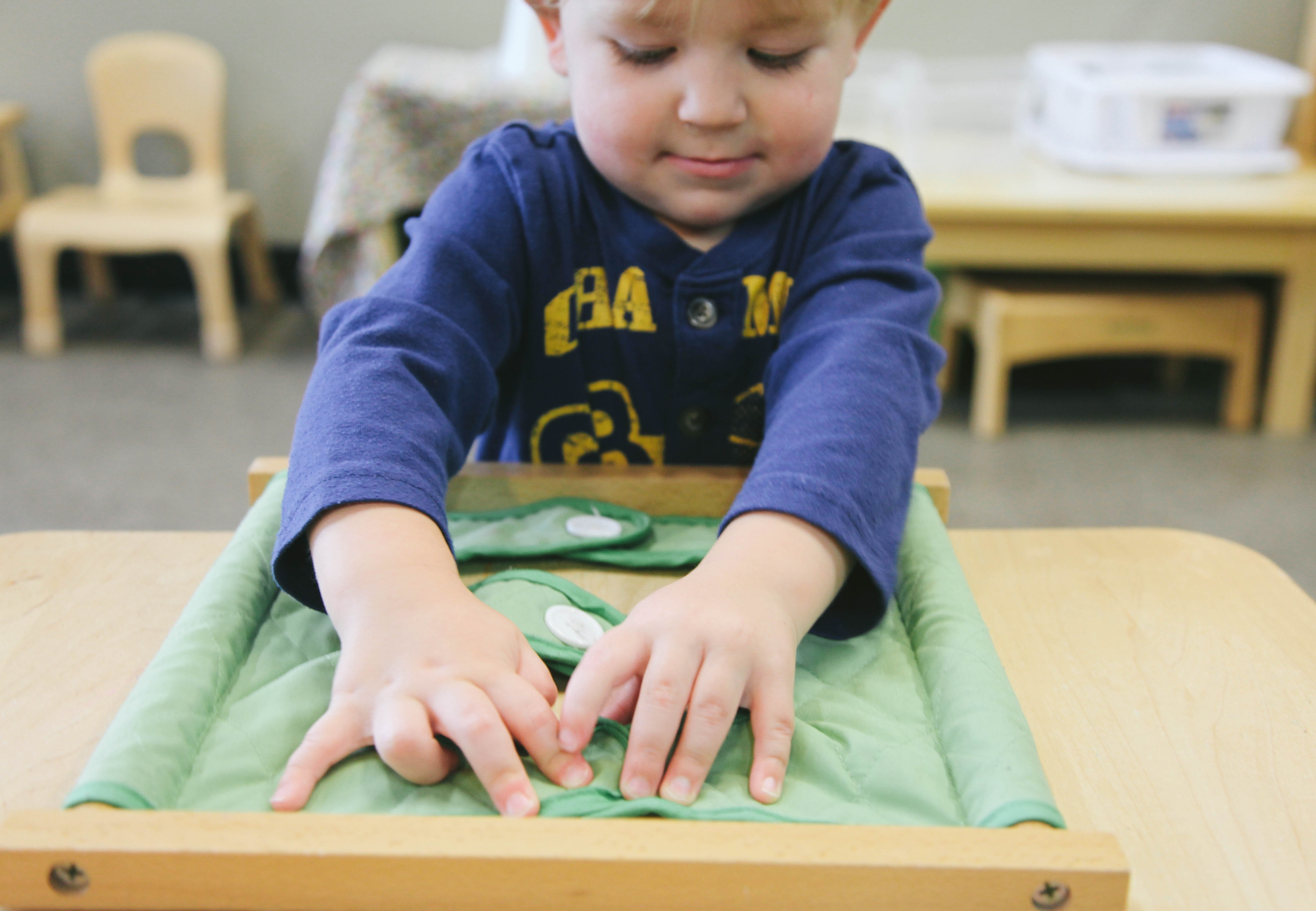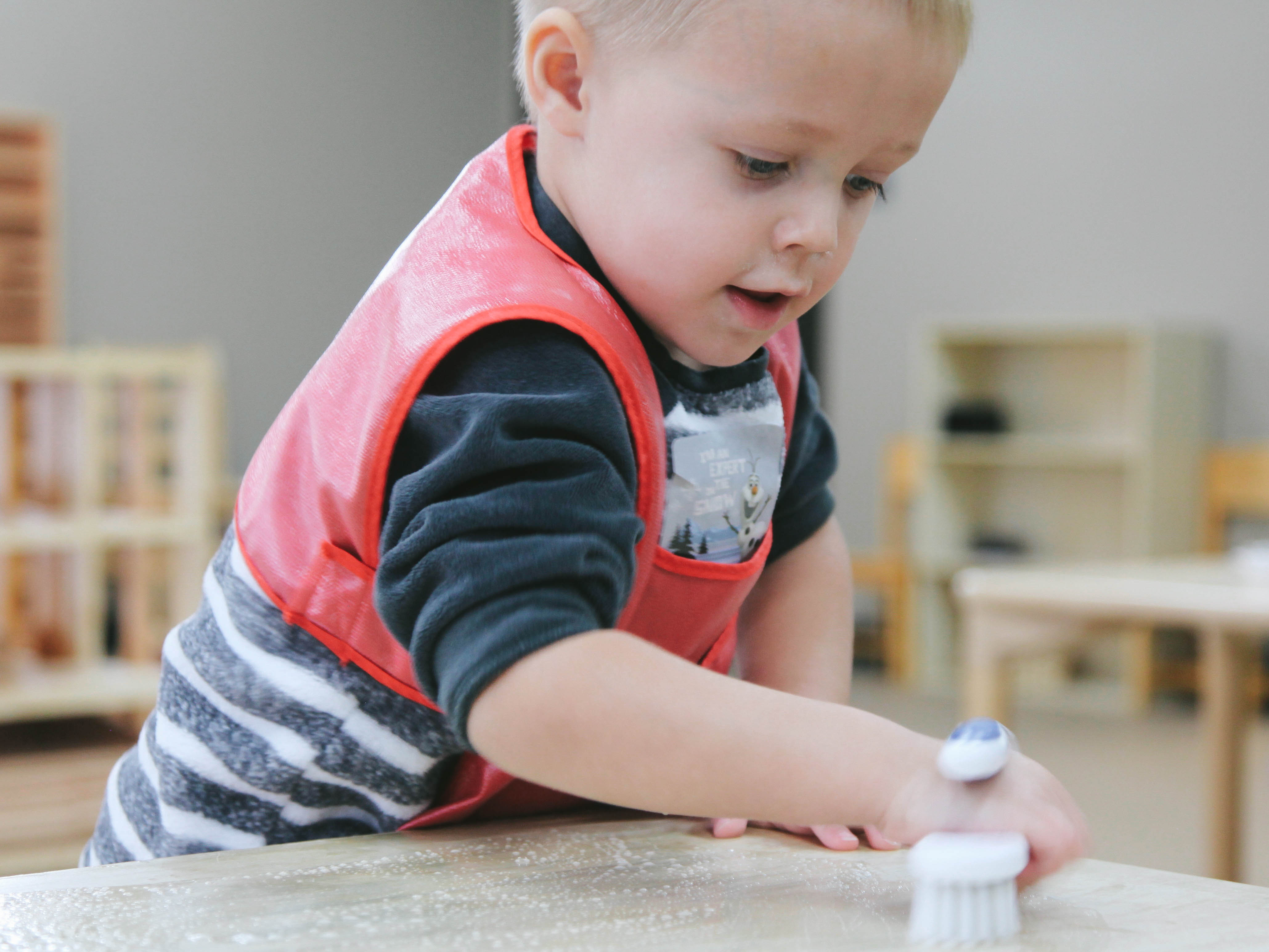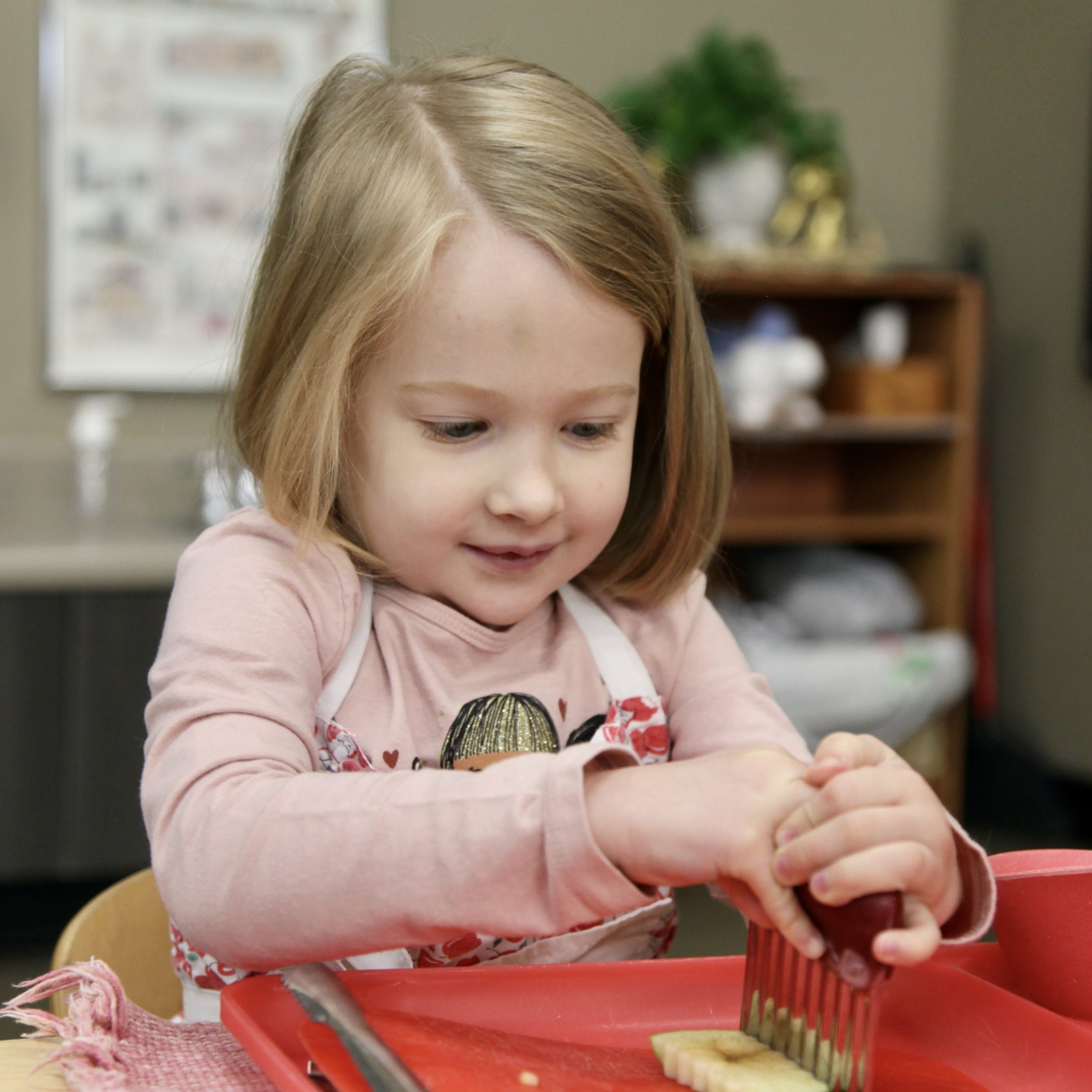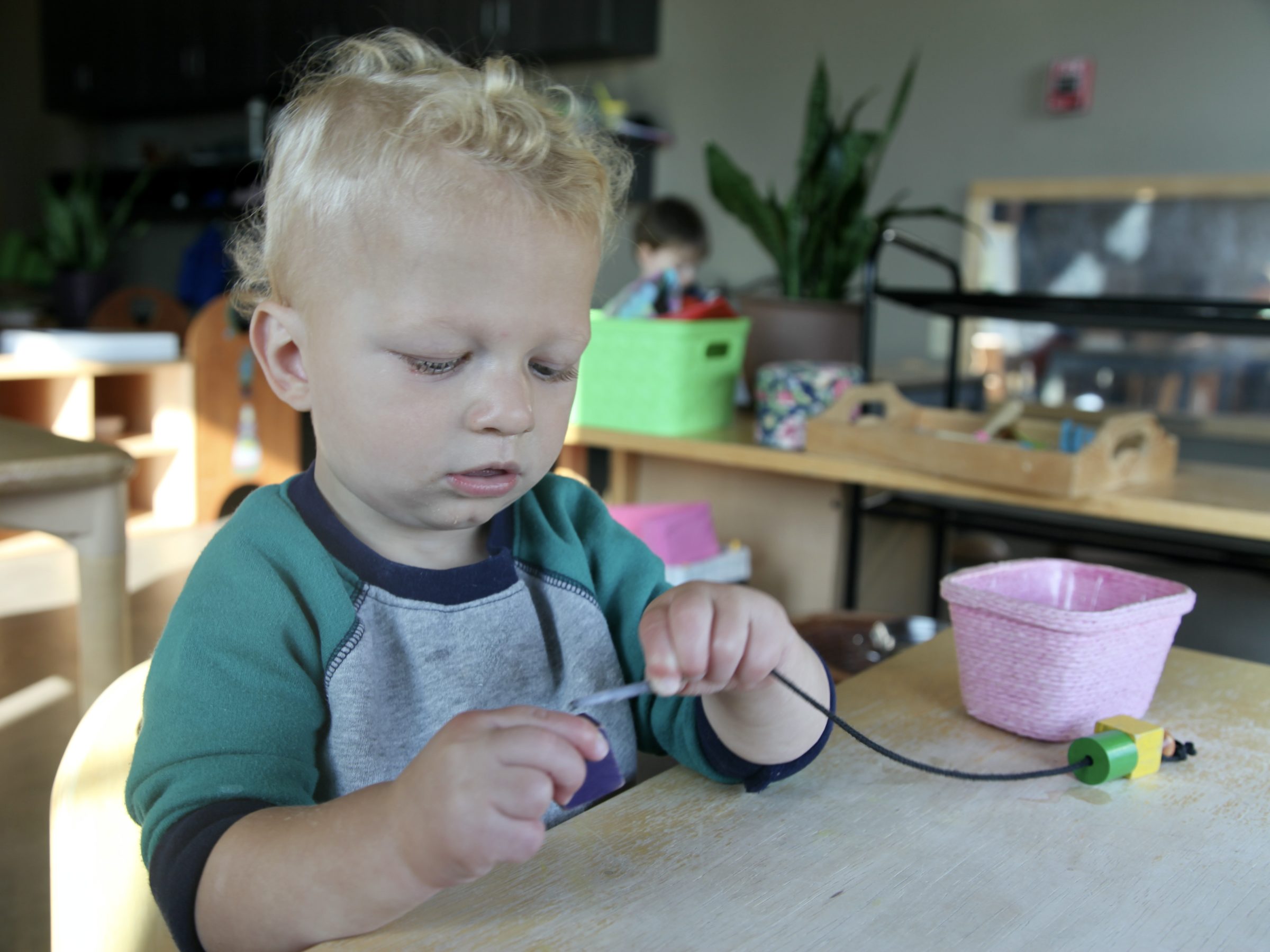Individualizing Education
Thoughts & Reflections
Montessori is known for individualized education. This can be misleading, since we hear this and, of course, make our own assumptions about what this means. Maybe I hated math in school, and the idea that my child wouldn’t have to struggle with this brings a sigh of relief. Maybe I hated math, until we got to geometry, and now I’m an architect, and I am concerned that if we get to avoid the things we like I would never have discovered my life’s work. Maybe I worry my child would decide to only sit at the snack table or in the library and that’s a bit concerning.
So, what is individualized education?
We’re all different, but sometimes not as dramatically so as we’d like to believe. I prefer coffee, you prefer tea, but we all need to drink. I took my first steps on a sandy beach, you didn’t go barefoot because you lived in a big city, but we still learned to walk. While the language those first words were spoken in is different, we all learn to communicate.
Especially in the early years in a Montessori classroom, we’re all learning the same things. We’re learning hand-eye coordination and balance. We’re learning sounds and numeracy. We’re learning grit and patience. What varies is when.
Take two three-year-olds. One might be drawn toward language development, the other toward gross motor development — two very normal, appropriate goals for three-year-olds to be striving to master.
If tell the first child, the child interested in language, be quiet, right now you need to work on your balance. Stop talking to everyone you pass, just keep making trips to and from the shelf carrying these heavy objects with care. No, don’t stop sweeping to watch these older children have a conversation, you’re not done helping the two hemispheres of your brain communicate, well, I’ve created a conflict.
In the same way, if I tell the second child, the child developing gross motor skills, sit down and be quiet. Why are you rolling all the rugs, they look fine, come sit at this table. No, those dishes are already clean, you can sit and have snack now, you don’t need to wash them again. You’ve already built the Pink Tower, don’t you want to learn the language that goes along with it? I’m creating a conflict.

If, instead, I notice the first child’s behavior and feed it — let’s have conversations, I’m having a group will you join me, encouraging them to observe as a child has a lesson on vocabulary, not interrupting their deeply important observation work as they observe two kindergarten-age children in a discussion about which is the best sea creature — the need will be met, and we can move on to gross motor development.
If, instead, I notice the second child’s behavior and feed it — could you sweep the whole classroom? I think every rug needs to be rolled, every table scrubbed. I put a rug for you to walk to all the way across the room. Someone needs to carry this heavy bucket, could it be you? — the need will be met, and we can move on to language development.
We will all need to develop communication skills. We will all need to develop balance, hand-eye coordination, and manual dexterity. When this special moments arise, this moment where this material is just right, or this set of skills is on full-boil, that is what varies person-to-person; there is a range when we might be particularly on lookout for it, but there is no set day or week or month that a set of skills “should” be taught.
Just as we show the materials and engage a child in activities that are just right for the development you are particularly striving to master at this moment, how long we spend here is truly up to you.
We all have areas where things come easily. We all have things we need to spend more time and energy and patience on to master. If I’m showing a keen interest in language, and we’re working on new sounds in the form of Sandpaper Letters, if those new letter sounds take one day to master, wonderful! We’ll move on next time. On the other hand, if I’m acutely interested in language and we’re working on new sounds in the form of Sandpaper Letters and I’ve not yet mastered it in one day, also wonderful! We might try different or the same Sandpaper Letters the next time we sit down together, but we won’t move on to the next step, composing words with the Movable Alphabet in this case, until my letter sounds are mastered. There is no good or bad, better or worse, there’s only my own mastery.
Individualized Education doesn’t mean we do whatever we want, or we avoid things that don’t come easily. It means we’ll follow you, each step when exactly you’re ready, not pushing you forward or holding you back. As much help as necessary, as little as possible. Just right.
Written by:
Charlotte Snyder



